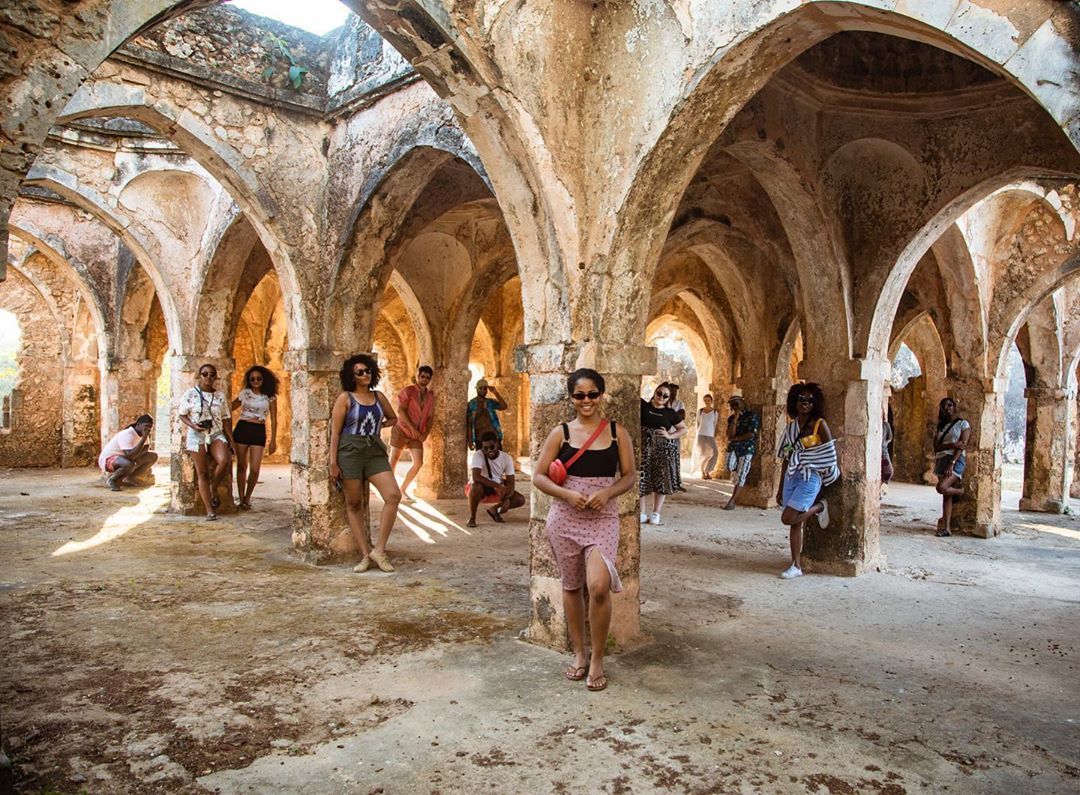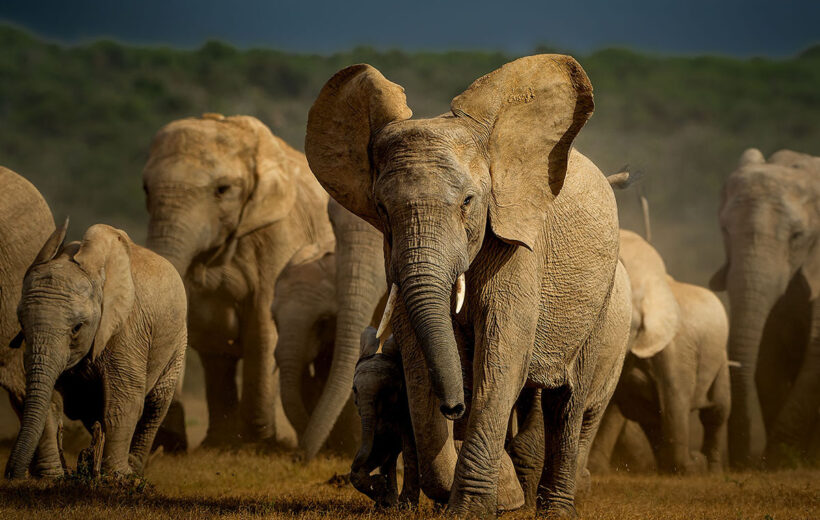Kilwa Kisiwani
Kilwa Kisiwani
Kilwa Kisiwani, often simply referred to as Kilwa, is a historical and archaeological site located on an island in the Indian Ocean, just off the coast of southern Tanzania. It holds significant cultural and historical importance, and here's an overview of what you can expect when visiting Kilwa Kisiwani:

Key features of Kilwa Kisiwani
Historical Significance: Kilwa Kisiwani was once a powerful and wealthy Swahili city-state. Its history dates back to the 9th century, and it became a prominent trading hub along the East African coast. Kilwa was renowned for its trade in gold, ivory, spices, and other valuable commodities, and it played a vital role in connecting the African interior with the Indian Ocean trade routes.
2. Ruins and Architecture: The island is dotted with the remains of ancient buildings, including intricately designed mosques, impressive stone houses, and fortifications. Notable sites include the Great Mosque, built in the 9th century and considered one of the oldest mosques in East Africa, and the Husuni Kubwa palace complex, which reflects the grandeur of the city's heyday.
3. UNESCO World Heritage Site: Kilwa Kisiwani is recognized as a UNESCO World Heritage Site for its cultural and historical significance. The well-preserved ruins and archaeological sites offer valuable insights into the Swahili civilization and its role in the global trade network.
4. Archaeological Exploration: Visitors to Kilwa Kisiwani can explore the archaeological sites and learn about the ongoing excavations. The island provides a unique opportunity to witness the history of the Swahili coast as it is uncovered by archaeologists.
5. Tranquil Beaches: In addition to its historical significance, Kilwa Kisiwani boasts beautiful and tranquil beaches. The pristine shores and clear waters make it an ideal place for relaxation and enjoying the natural beauty of the Indian Ocean.
6. Nearby Kilwa Masoko: Kilwa Kisiwani is often visited in conjunction with Kilwa Masoko, a nearby fishing village on the mainland. This village provides insights into local daily life and offers a chance to experience the Swahili culture of the region.
7. Guided Tours: Guided tours are available on the island, and knowledgeable guides can provide historical context and stories about Kilwa's past. They can help you appreciate the significance of the ruins and structures.
8. Cultural Experience: Exploring Kilwa Kisiwani offers a cultural experience that combines history, archaeology, and the charm of coastal life. You can interact with local residents and experience the unique Swahili culture.
Best Time to Visit
The best time to visit Kilwa Kisiwani, like many coastal destinations in East Africa, is during the dry season when the weather is most favorable for outdoor exploration and cultural experiences. Here are the ideal times to plan your visit:
1. June to October (Dry Season): This period marks the dry season in the region, with minimal rainfall and generally pleasant weather. The temperatures are comfortable, and the skies are clear. It’s an excellent time for exploring the archaeological sites, beaches, and historical landmarks on Kilwa Kisiwani without the hindrance of heavy rain. The wildlife and marine life are also active during this season, making it suitable for coastal activities.
2. November to March (Short Rainy Season): This is a transitional period between the short rains and dry season. While there might be some rainfall, the weather is still relatively pleasant for travelers. It’s a less crowded time to visit Kilwa Kisiwani, and you can enjoy the island’s beauty and cultural sites without large crowds. Just be prepared for sporadic showers.
3. April to May (Long Rainy Season): This period is characterized by heavy rainfall, which can make exploration challenging due to wet and muddy conditions. Traveling to Kilwa Kisiwani during this time is generally not recommended, as heavy rains can limit your activities and disrupt travel plans.
Keep in mind that Kilwa Kisiwani is a remote historical site, and while it’s an attractive destination year-round for those interested in archaeology and history, it may have limited facilities and services compared to larger tourist destinations. Therefore, planning your visit during the dry season is advisable to ensure the best experience with favorable weather conditions and easier access to the island and its cultural treasures.
Kilwa Kisiwani, with its rich historical and cultural heritage, offers a variety of activities for visitors interested in exploring its unique attractions. Here are some things to do in Kilwa Kisiwani:
-
Explore the Ruins: Kilwa Kisiwani is known for its well-preserved ruins and archaeological sites. Visit the Great Mosque, the oldest mosque on the Swahili Coast, and the Husuni Kubwa palace complex to admire the intricate architecture and learn about the island’s history.
-
Visit the Gereza (Prison): The Gereza, or Prison, is one of the island’s historical landmarks. While it was never fully utilized as a prison, it provides insights into the island’s colonial past and is an interesting place to explore.
-
Interact with Giant Tortoises: Kilwa Kisiwani is home to a population of giant Aldabra tortoises. You can visit these gentle creatures, which have become a symbol of the island, and even feed them. It’s a unique and memorable experience.
-
Snorkeling and Diving: The clear waters surrounding Kilwa Kisiwani offer excellent opportunities for snorkeling and diving. Explore the coral reefs and discover the diverse marine life, including colorful fish and corals.
-
Relax on the Beaches: The island’s tranquil and pristine beaches are perfect for relaxation. Whether you want to sunbathe, swim, or simply enjoy the sound of the waves, the beaches offer a peaceful retreat.
-
Take a Guided Tour: Guided tours of the island are available, and knowledgeable guides can provide historical context and stories about Kilwa’s past. They can help you appreciate the significance of the ruins and structures.
-
Learn About Swahili Culture: Kilwa Kisiwani provides opportunities to learn about the Swahili culture, from its history to its traditions. Engage with local residents, experience the local way of life, and appreciate the unique blend of African, Arab, and Indian influences in the region.
-
Photography: The island’s historical sites, turquoise waters, and giant tortoises provide excellent subject matter for photography. Capture the beauty and cultural significance of Kilwa Kisiwani through your lens.
-
Support Conservation Efforts: Learn about the conservation initiatives on the island and find out how you can support the protection of Kilwa Kisiwani’s cultural and natural heritage. Your visit can contribute to preserving this unique site for future generations.
-
Enjoy the Serenity: One of the most remarkable aspects of Kilwa Kisiwani is its tranquility. Embrace the serenity of the island, away from the hustle and bustle of more touristy destinations. It’s an ideal place for peaceful reflection and contemplation.
Kilwa Kisiwani is a destination that invites exploration, cultural immersion, and appreciation of its historical significance. It offers a balance of archaeological wonders and natural beauty, making it a compelling destination for travelers interested in history, culture, and coastal relaxation.
A visit to Kilwa Kisiwani offers a unique cultural experience that provides insights into the rich and diverse heritage of the Swahili coast. Here are some ways to immerse yourself in the cultural aspects of Kilwa Kisiwani:
-
Historical Ruins: Kilwa Kisiwani is home to well-preserved historical ruins, including the Great Mosque and the Husuni Kubwa palace complex. Exploring these architectural wonders offers a window into the island’s history, Islamic influence, and the craftsmanship of the Swahili people.
-
Interact with Locals: Engaging with the local population is a great way to learn about the culture of Kilwa Kisiwani. Take the opportunity to chat with island residents, hear their stories, and gain a deeper understanding of their way of life.
-
Cultural Festivals: Check if there are any local cultural festivals or events happening during your visit. These occasions often showcase traditional dances, music, and other cultural practices, offering an authentic experience of Swahili traditions.
-
Swahili Cuisine: Explore the local culinary scene by trying Swahili dishes. Seafood is a significant part of the cuisine, and you can savor fresh catches from the Indian Ocean. Don’t miss the chance to taste local specialties like biryani, pilau, and mishkaki (kebabs).
-
Traditional Music and Dance: Swahili music and dance are integral to the cultural fabric of Kilwa Kisiwani. Look for opportunities to witness traditional performances, which often feature lively drumming, singing, and energetic dances that reflect the island’s cultural heritage.
-
Art and Craftsmanship: Kilwa Kisiwani has a tradition of art and craftsmanship. Local artisans create intricate woodwork, textiles, and crafts that showcase the island’s cultural identity. Visit craft shops to admire and purchase these unique creations.
-
Historical Context: When exploring the ruins and historical sites, consider taking a guided tour. Knowledgeable guides can provide historical and cultural context, sharing stories and insights that enhance your appreciation of the island’s heritage.
-
Language and Communication: Learn a few Swahili phrases or greetings, as this can go a long way in making connections with the locals. Even basic knowledge of the language can be a sign of respect for the culture.
-
Respect Local Customs: Swahili culture places a strong emphasis on respect and courtesy. Be mindful of local customs, such as dressing modestly when visiting religious sites and removing your shoes before entering someone’s home.
-
Participate in Daily Life: To gain a deeper cultural experience, consider participating in daily activities like fishing with the locals or visiting a local market. These activities offer an authentic glimpse into the lives of the island’s residents.
Kilwa Kisiwani’s cultural experience is a fascinating blend of history, art, music, and the warmth of its people. It’s a place where you can not only explore the past but also engage with the vibrant present-day Swahili culture, creating lasting memories of your visit to this historically significant island.
Getting to Kilwa Kisiwani involves a combination of transportation modes, including flights, road travel, and boat rides. Here’s a step-by-step guide on how to get to Kilwa Kisiwani:
1. International Flight: If you’re traveling from abroad, your journey typically begins with an international flight to Julius Nyerere International Airport (DAR) in Dar es Salaam, Tanzania. Dar es Salaam is the major international gateway to the country.
2. Domestic Flight to Kilwa Masoko: From Dar es Salaam, you’ll need to take a domestic flight to Kilwa Masoko Airport (KIL). Several domestic airlines operate flights between Dar es Salaam and Kilwa Masoko, which is the nearest airport to Kilwa Kisiwani.
3. Road Transfer to Kilwa Masoko Harbor: After landing at Kilwa Masoko Airport, you’ll need to arrange a road transfer to Kilwa Masoko Harbor. Kilwa Masoko is a mainland town located near Kilwa Kisiwani, and it’s the departure point for boat trips to the island. The transfer can be arranged through your accommodation or a local transport service.
4. Boat Ride to Kilwa Kisiwani: At Kilwa Masoko Harbor, you can hire a boat or arrange for a boat tour to Kilwa Kisiwani. The boat trip to the island takes approximately 30-45 minutes, depending on the type of boat and weather conditions. The boat ride offers beautiful views of the coastal area and Indian Ocean.
5. Arrival on Kilwa Kisiwani: Upon reaching Kilwa Kisiwani, you’ll disembark and can begin exploring the island. You may need to arrange transportation on the island if it’s not provided by your accommodation.
It’s important to plan your flights and transfers in advance, especially the domestic flight to Kilwa Masoko, as flight schedules can vary. Additionally, be prepared for some variability in transportation services and schedules, as Kilwa Kisiwani is a relatively remote location compared to more touristy destinations in Tanzania.
Make sure to confirm your travel arrangements and boat transfer in advance to ensure a smooth journey to Kilwa Kisiwani, where you can immerse yourself in the island’s rich history and cultural heritage.






